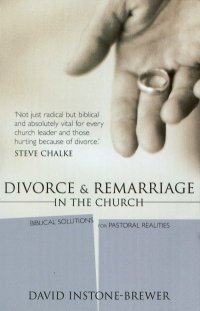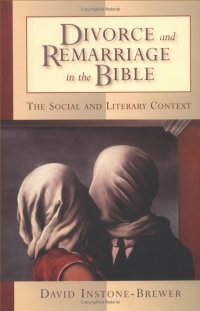

|
Reviews
Divorce and Remarriage | ||

|
"A commendable volume on a controversial
subject" Casimir Bernas Religious Studies Review July 2003 |

|
| Full review: | ||
|
"The message of the NT is that divorce is al-lowed but should be avoided whenever possi-ble." This succint statement sums up Instone-Brewer's study of divorce in the ancient Near Fast, Pentateuch, Prophets, intertestamental period, rabbinic teaching, the teach-ing of Jesus and Paul. The analysis continues, with discussions of marriage vows, interpreta-tions throughout church history, modem eluci-dations, and current pastoral practices. In gen-eral, the lathers of the church read the NT in a straightforward manner: divorce, but not remar-riage, was permitted only in the case of adultery. The Reformers used subtle arguments to permit remarriage after divorce (adultery or desertion by an unbeliever). Modem interpreters tend to favor divorce in specified cases; Instone-Brewer is no exception. The Catholic church's teaching on "annulment" is fairly presented: by various canonical casuistries, a marriage had never re-ally happened. Larger issues, of course, are at is-sue here: who or what is the final arbiter of church doctrine and discipline? A divinely em-powered, enlightened individual or group, or the sentiments of individual exegetes? In short, a commendable volume on a controversial subject. Casimir Bernas, Holy Trinity Abbey
|
||
| Read more reviews... | ||
Version
-for ministers
-for academics
-for everyone
Summary
Questions/
Comments
& Replies